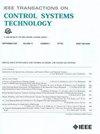MMC-HVdc成网运行的非线性控制器
IF 3.9
2区 计算机科学
Q1 AUTOMATION & CONTROL SYSTEMS
引用次数: 0
摘要
模块化多电平变换器(MMC)的发展使大功率高压直流(HVdc)输电系统的高效创建成为可能。因此,MMC-HVdc输电系统成为整合远程可再生能源的主要替代方案,这些可再生能源正在加速部署,以应对气候变化。随着传统同步发电机(SGs)在线数量的减少和基于变流器的电源数量的增加,电力系统的惯性水平越来越低,辅助服务提供商越来越少。因此,新的控制策略,如电网成形(GFM)变流器运行,被开发来解决正在进行的电力系统改造。本文的主要贡献是提出了一种与GFM运行兼容的非线性(NL)控制策略,用于作为虚拟同步机(VSM)控制的MMC-HVdc输电系统。控制策略是使用NL控制工具开发的,如反馈线性化、动态反馈线性化和反步。此外,本文还应用李亚普诺夫理论给出了严格的数学稳定性分析。然后,使用MATLAB/Simscape Electrical软件包在三种情况下对所提出的控制策略进行了仿真验证:有功功率跟踪、转换器能量跟踪和频率支持场景。结果表明,所提出的NL控制器在所有考虑的情况下都具有良好的性能,与经典的比例积分(PI)控制器相比,具有快速的响应和更快的抗干扰能力。本文章由计算机程序翻译,如有差异,请以英文原文为准。
Nonlinear Controller for MMC-HVdc Operating in Grid-Forming Mode
The development of the modular multilevel converter (MMC) enabled the efficient creation of high-power high-voltage direct current (HVdc) transmission systems. As a result, MMC-HVdc transmission systems became the main alternative to integrate remote renewable energy sources being deployed in accelerating rates to fight climate change. As the number of online classical synchronous generators (SGs) decreases while the one of converter-based power sources increases, power systems are suffering from lower inertia levels and from fewer providers of ancillary services. Therefore, new control strategies, such as the grid-forming (GFM) converter operation, were developed to address the ongoing power system transformation. The main contribution of this article is to propose a nonlinear (NL) control strategy compatible with GFM operation for an MMC-HVdc transmission system controlled as a virtual synchronous machine (VSM). The control strategy is developed using NL control tools, such as feedback linearization, dynamic feedback linearization, and backstepping. In addition, this article provides a rigorous mathematical stability analysis applying Lyapunov theory. The proposed control strategy is then validated by simulations using the MATLAB/Simscape Electrical package in three situations: active power tracking, converter energy tracking, and a frequency support scenario. Results show the good performance of the proposed NL controller for all situations considered, presenting a fast response and a faster disturbance rejection compared with the classical proportional integral (PI) controller.
求助全文
通过发布文献求助,成功后即可免费获取论文全文。
去求助
来源期刊

IEEE Transactions on Control Systems Technology
工程技术-工程:电子与电气
CiteScore
10.70
自引率
2.10%
发文量
218
审稿时长
6.7 months
期刊介绍:
The IEEE Transactions on Control Systems Technology publishes high quality technical papers on technological advances in control engineering. The word technology is from the Greek technologia. The modern meaning is a scientific method to achieve a practical purpose. Control Systems Technology includes all aspects of control engineering needed to implement practical control systems, from analysis and design, through simulation and hardware. A primary purpose of the IEEE Transactions on Control Systems Technology is to have an archival publication which will bridge the gap between theory and practice. Papers are published in the IEEE Transactions on Control System Technology which disclose significant new knowledge, exploratory developments, or practical applications in all aspects of technology needed to implement control systems, from analysis and design through simulation, and hardware.
 求助内容:
求助内容: 应助结果提醒方式:
应助结果提醒方式:


